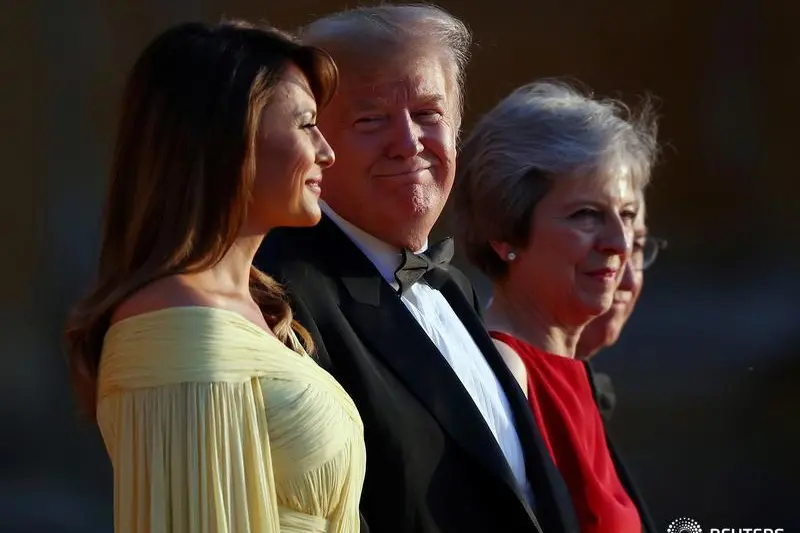PHOTO
LONDON (Reuters Breakingviews) - It has not been Theresa May’s week. Having corralled her cabinet into agreement on a softened Brexit strategy last weekend, two senior ministers noisily quit. Then on Thursday Donald Trump overshadowed the early pageantry of his visit to the United Kingdom with an interview in the Sun newspaper. The U.S. president tore into the British prime minister’s plans for leaving the European Union and praised Boris Johnson, one of the ministers who resigned, among much else. So it’s a crumb of comfort that May can at least claim her country has a soft-power edge over the United States – for now.
A newly released annual ranking of nations’ powers of persuasion surprisingly put the UK back on top, narrowly displacing France. The producers of the Soft Power 30, communications firm Portland and the University of Southern California Center on Public Diplomacy, give three main reasons. One is that despite all the Brexit activity Britain has not yet left the EU, so hard data still reflects its membership.
That will change if the official divorce goes ahead as planned in March 2019, making it harder for the Brits to stay on top next year. But other factors should endure. The UK has a well-balanced mix of the relevant strengths, the Soft Power 30 compilers argue, including cultural, digital and educational assets. Third, global opinion about the country has stabilised, they say.
Soft power is about how a country is perceived from outside, which explains the United States’ slump to fourth in the ranking, down from the top spot only two years ago. Trump’s combative “America First” stance does not play well abroad, as the indexers note, whether in relation to trade, immigration, security alliances or otherwise.
The world’s largest economy still boasts stellar universities which draw international students, Silicon Valley powerhouses like Apple and Facebook, and dominant film, television and technology industries overall. These advantages are propping up U.S. soft power.
Trump, though, prefers to project firmness to the point of rejecting the possibility of mutual benefit, even over quantifiable matters like trade. As a result, America’s overall soft power is on the wane. The UK’s moment of supremacy is a small victory for May – but with France and Germany close behind, it may prove fleeting.
CONTEXT NEWS
- U.S. President Donald Trump arrived in the United Kingdom on July 12. In a wide-ranging interview with the Sun newspaper, he directly criticised Prime Minister Theresa May’s Brexit strategy, saying her proposals had probably killed off hope of a U.S. trade deal and that she had failed to take his advice on how to negotiate with the European Union.
- An annual ranking of nations’ soft power, released on July 12, put the UK back at the top of the list, narrowly beating 2017’s top-ranked country, France. The United States slid to No. 4 in the ranking, produced by communications firm Portland and the University of Southern California Center on Public Diplomacy.
(Editing by Peter Thal Larsen and Bob Cervi)
© Reuters News 2018





















